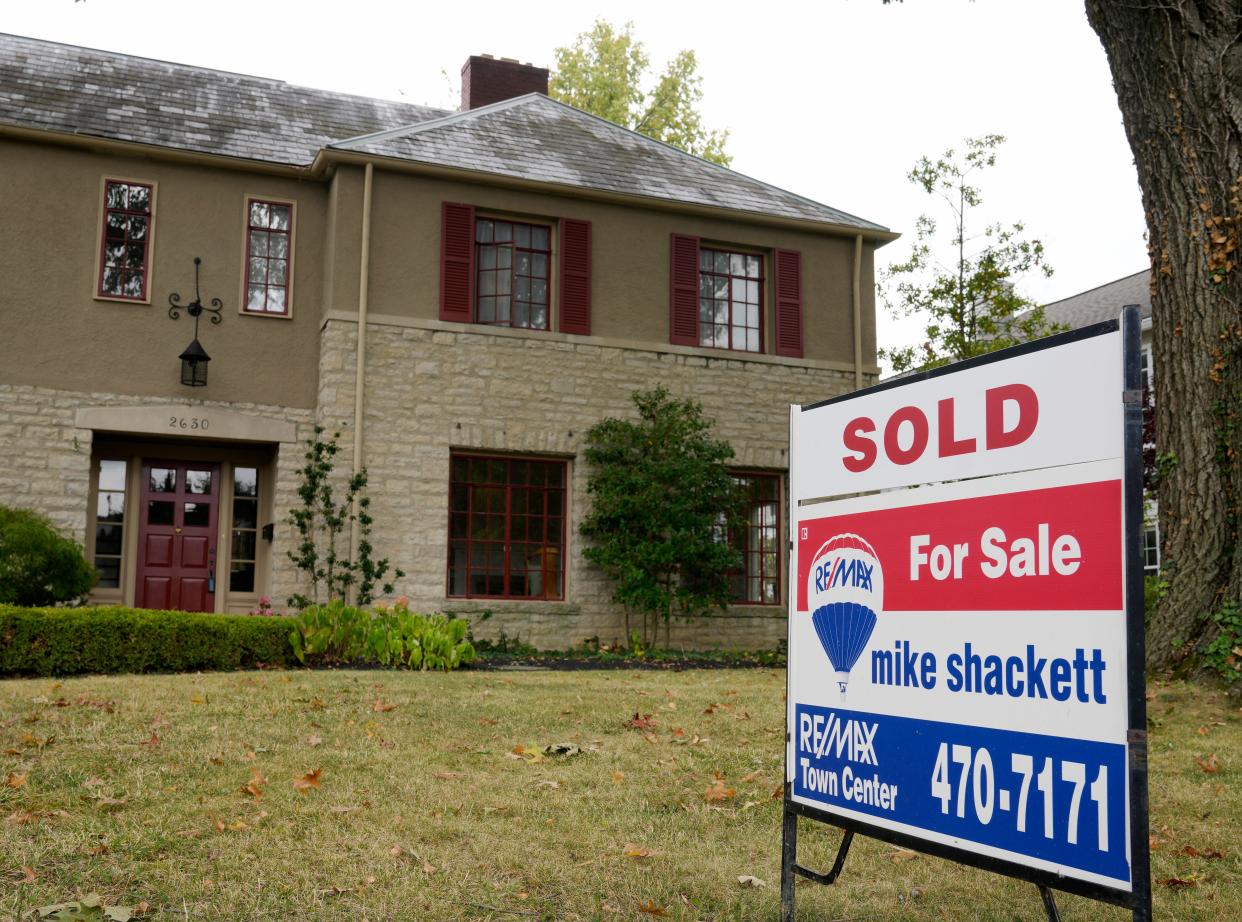Ohio House passes bill to combat rising home values. What it means for Summit homeowners

The Ohio House passed legislation Wednesday to change how home values are calculated in an effort to blunt the impact of property tax increases.
But the state's tax woes are still far from resolved. And the forward-looking fix, as passed by the House, won't help Summit County homeowners expecting larger tax bills in January.
House Bill 187 would require county auditors to use three years' worth of home sale data to determine home values in 2023, 2024 and 2025, instead of only the most recent year, which the state has required since 2020. A three-year look-back would smooth the impact of single-year fluctuations in sales when resetting property values that, in turn, determine property taxes.
It's unclear what impact the bill could have on future property reappraisals. If the market cools, counties resetting their values next year, as state law requires every three years, would have to use inflated sales data from 2020 and 2021. That would result in higher values. But if the sales prices soar higher in 2022 than they did in 2020 or 2021, then three-years of data would result lower valuation hikes, in theory.
Responding to complaining constituents and elected auditors, the General Assembly scrambled this year to enact a three-year look-back. Had such a law been enacted, the average property increase of 31.4% in Summit County could have been cut nearly in half. The county's reappraisal cycle required a reassessment this year, which covered changes in the market over the last three years.
Since the last reappraisal in 2020, 26,274 residential sold in the county, according to the Summit County Fiscal Office. In 2020 and 2021, they collectively sold at 31% and 26% over their new county-appraised value, meaning they're even more valuable according to the real estate market than their newly increased taxable values. But in 2022, the only year the state said the county could use in its calculations, sales brought in 56% above their new county-appraised values, which shows the distorting impact a single year of data can have compared to three years.
More: What can Ohio lawmakers do to stop historic property tax increases in 2024?
Rep. Bill Roemer (R-Richfield) rushed House Bill 187 through the Ways and Means Committee, which he chairs, in hopes that the bill could get done and approved by enough lawmakers to go into immediate effect. But too many representatives were absent Wednesday to pass the bill with an emergency, quick-enactment clause.
Roemer said there remains a "slim chance" that the Senate adds that emergency provision, but time is running out for Summit County homeowners looking for relief from eye-popping tax bills mailed out in January.
Rep. Thomas Hall, R-Madison Township, said House Bill 187 is only a temporary fix until lawmakers can hash out a more permanent solution. Republicans and Democrats have proposed several ideas to alleviate the property tax burden, such as limiting increases for low-income Ohioans and freezing taxes for certain residents over 70.
“It’s not that people don’t want to pay taxes," Hall said. "These steep increases are really what’s killing people."
The bill also changes the calculation for farmland, which is valued based on its agricultural use. And the tax commissioner, who reviews counties' valuations, would no longer be able to order auditors to adjust them if the commissioner believes something is off.
"It's a bill that puts the property tax calculation more into the local governments as opposed to here in Columbus," House Speaker Jason Stephens, R-Kitts Hill, said.
County auditors, schools oppose House Bill 187
Not everyone is convinced House Bill 187 is a solution.
The proposal would reduce the projected increase in tax collections to school districts and local governments by an estimated $539 million, according to a fiscal analysis by the Legislative Service Commission. House Democrats said they heard from school superintendents who were alarmed at the prospect of smaller revenue increases.
And, despite support from local elected officials in Summit and other counties, not all county auditors and treasurers are on board. Their associations issued a statement Wednesday saying the bill would "wreak havoc" on the tax collection process and require counties that already finalized values to redo their numbers. It could also lead to different tax amounts for the first and second half of 2024, they warned.
Timing is of the essence if lawmakers want to make a dent in next year's tax bills. The measure now heads to the Senate, but the House didn't have enough votes Wednesday to add an emergency clause that would let it take effect immediately. Despite that, Hall believes lawmakers can push the matter to mid-November.
Others say it's too late.
“There is a very good possibility that this is not going to be done in time for the beginning of the year," Rep. Daniel Troy, D-Willowick, said.
Beacon Journal reporter Doug Livingston contributed to this report. Haley BeMiller is a reporter for the USA TODAY Network Ohio Bureau, which serves the Columbus Dispatch, Cincinnati Enquirer, Akron Beacon Journal and 18 other affiliated news organizations across Ohio.
This article originally appeared on The Columbus Dispatch: Ohio House passes bill to ease rising home values, property taxes

